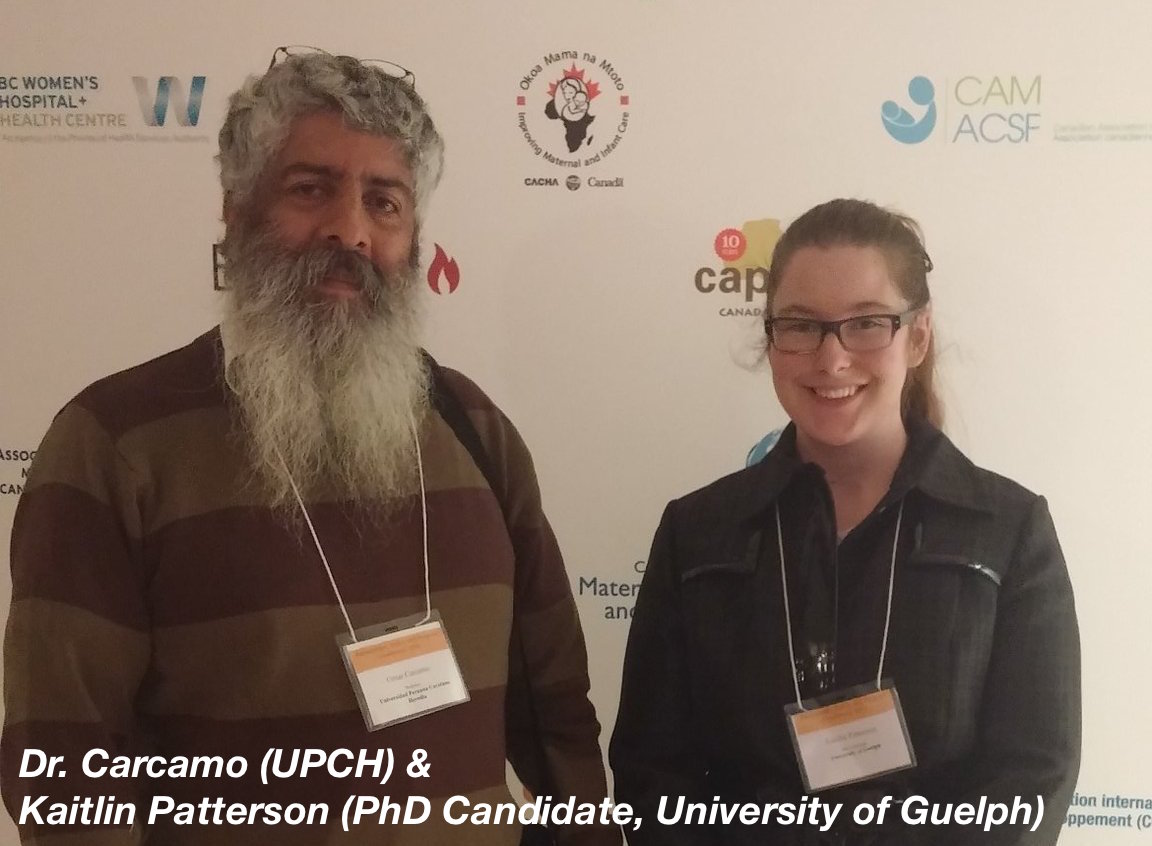Written by Kaitlin Patterson, PhD Candidate
 This week I attended the Canadian Network for Maternal, Newborn and Child Health Conference in Montreal. The focus of the panels and discussions was the 3 Ps: Partnerships, Policy, and Progress. Discussions ranged from how and which policies can support the achievement of the sustainable development goals (in particular those related to maternal and child health, and gender equality), successes and lessons learned in programming and partnerships, and pathways for the future. I was also delighted to run into an IHACC and CCIFS3 collaborator Dr. Cesar Carcamo from the Universidad Peruana Cayetano Heredia. It was really great to connect with him and take a token IHACC pic!
This week I attended the Canadian Network for Maternal, Newborn and Child Health Conference in Montreal. The focus of the panels and discussions was the 3 Ps: Partnerships, Policy, and Progress. Discussions ranged from how and which policies can support the achievement of the sustainable development goals (in particular those related to maternal and child health, and gender equality), successes and lessons learned in programming and partnerships, and pathways for the future. I was also delighted to run into an IHACC and CCIFS3 collaborator Dr. Cesar Carcamo from the Universidad Peruana Cayetano Heredia. It was really great to connect with him and take a token IHACC pic!
Two key themes stood out/impacted me most. The first was the neglect to identify adolescents as a priority population in many of the global health priorities and targets. Maternal mortality is the highest cause of death among adolescent girls. They have the least amount of education, money, health services or access to contraception, further exacerbated by the continuation and propagation of child marriage, and the highest rates of HIV acquisition in Africa. The second theme closely linked with the first was the need to ensure sexual reproductive rights including access to safe abortions and post abortion care, contraception/family planning, feminine hygiene products, and putting an end to child marriage.
A refreshing aspect of this conference was that it was not self congratulatory. The speakers and panelists were not self-deprecating, but they were critically reflexive. They openly discussed how as a global community we are failing women. We have not decided that women’s lives are worth saving. We need to be better. It was an impassioned call and a resolve to meet these global challenges.
Nyaradazayi Gumbonzvanda (Goodwill Ambassador of the African Union Campaign to End Child Marriage & World YWCA General Secretary) ended the conference with a poignant reminder for anyone doing research or working with communities, “[y]ou are not going to the field. You are going to someone’s home, the totality of their world”.